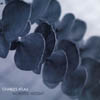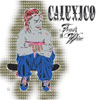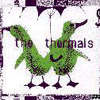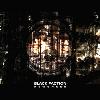 For those of us who do not have our very own lavish, sunlight-flooded house with a private lake in the backyard, the trio of Charles Atlas has captured the all-encompassing scenery, beauty, and fragrant air, and packaged it for our livingrooms and headsets. Once a pet project of Charles Wyatt (former guitarist for Dart and the one who clearly put the "magic" in early Piano Magic recordings), Charles Atlas soon became a fulltime duo with the fulltime involvement of former Rosemarys keyboardist Matt Greenberg. On this, the fourth album, they have expanded to a truly mesmerising ensemble with the addition of Sascha Galvagna.
For those of us who do not have our very own lavish, sunlight-flooded house with a private lake in the backyard, the trio of Charles Atlas has captured the all-encompassing scenery, beauty, and fragrant air, and packaged it for our livingrooms and headsets. Once a pet project of Charles Wyatt (former guitarist for Dart and the one who clearly put the "magic" in early Piano Magic recordings), Charles Atlas soon became a fulltime duo with the fulltime involvement of former Rosemarys keyboardist Matt Greenberg. On this, the fourth album, they have expanded to a truly mesmerising ensemble with the addition of Sascha Galvagna.
 In 1981, The Clean's "Tally Ho!" single was the second release of the then nascent Flying Nun record label of New Zealand. This fact is largely responsible for establishing The Clean as the archetypes of the New Zealand/Flying Nun sound which sprung up mostly in the 1980's (and has persisted to the present). The sound was poppy, drony, distorted, melodic, tremulous, and brilliant. But as The Clean Anthology proves, the band did not just embrace this school of sound more fully than anyone else: they helped build it.
In 1981, The Clean's "Tally Ho!" single was the second release of the then nascent Flying Nun record label of New Zealand. This fact is largely responsible for establishing The Clean as the archetypes of the New Zealand/Flying Nun sound which sprung up mostly in the 1980's (and has persisted to the present). The sound was poppy, drony, distorted, melodic, tremulous, and brilliant. But as The Clean Anthology proves, the band did not just embrace this school of sound more fully than anyone else: they helped build it.
Quarterstick
 Calexico's lighthearted remix (or rather, remake) of Goldfrapp's"Human" single was my first exposure to the band, and it held a strongappeal to my kitschy desires. So, when presented with their newfull-length, I was expecting a fluffy yet fun slice of indie rock witha twinge of Mexican folk music. What I found instead was an album withan extraordinary blend of depth, humor and beauty for what isessentially an accessible rock album. Does this record make you want toget off your ass and flamenco dance? Absolutely; but it's alsosentimental, even mournful at times. Calexico, while heralding theirsouth-of-the-border aesthetic, don't rely on it as a sole gimmick.Don't get me wrong, that folksy lightheartedness is definitely present:"Sunken Waltz," "Guero Canelo" and "Attack El Robot! Attack!" comecomplete with the festive blaring trumpets and pedal steel and nylonguitars expectant of traditional Latin music. In fact, it is possiblythe band's use of stringed instruments in general that is their forte.The magnificent, melancholy "Black Heart" achieves its effectivenessmostly as a result of the heartbreaking violins. "The Book and theCanal" even recalls the band's Quarterstick labelmates, Rachel's withits somber stringed orchestrations and piano, while "Not Even StevieNicks ..." prevents a lapse into oversentimentalism with a dose ofhumor.
Calexico's lighthearted remix (or rather, remake) of Goldfrapp's"Human" single was my first exposure to the band, and it held a strongappeal to my kitschy desires. So, when presented with their newfull-length, I was expecting a fluffy yet fun slice of indie rock witha twinge of Mexican folk music. What I found instead was an album withan extraordinary blend of depth, humor and beauty for what isessentially an accessible rock album. Does this record make you want toget off your ass and flamenco dance? Absolutely; but it's alsosentimental, even mournful at times. Calexico, while heralding theirsouth-of-the-border aesthetic, don't rely on it as a sole gimmick.Don't get me wrong, that folksy lightheartedness is definitely present:"Sunken Waltz," "Guero Canelo" and "Attack El Robot! Attack!" comecomplete with the festive blaring trumpets and pedal steel and nylonguitars expectant of traditional Latin music. In fact, it is possiblythe band's use of stringed instruments in general that is their forte.The magnificent, melancholy "Black Heart" achieves its effectivenessmostly as a result of the heartbreaking violins. "The Book and theCanal" even recalls the band's Quarterstick labelmates, Rachel's withits somber stringed orchestrations and piano, while "Not Even StevieNicks ..." prevents a lapse into oversentimentalism with a dose ofhumor.
Though only 47 minutes long, Feast of Wirehas a sound so expansive, it's difficult to believe they packed so muchrichness into such a short span of time. The liner notes document theexhaustive list of instruments (and guest musicians!) present on thealbum. Calexico could no doubt persuade even the most jaded music snobthat originality and fresh ideas are still to be found within theoverwrought annals of indie rock.
 Calexico's lighthearted remix (or rather, remake) of Goldfrapp's"Human" single was my first exposure to the band, and it held a strongappeal to my kitschy desires. So, when presented with their newfull-length, I was expecting a fluffy yet fun slice of indie rock witha twinge of Mexican folk music. What I found instead was an album withan extraordinary blend of depth, humor and beauty for what isessentially an accessible rock album. Does this record make you want toget off your ass and flamenco dance? Absolutely; but it's alsosentimental, even mournful at times. Calexico, while heralding theirsouth-of-the-border aesthetic, don't rely on it as a sole gimmick.Don't get me wrong, that folksy lightheartedness is definitely present:"Sunken Waltz," "Guero Canelo" and "Attack El Robot! Attack!" comecomplete with the festive blaring trumpets and pedal steel and nylonguitars expectant of traditional Latin music. In fact, it is possiblythe band's use of stringed instruments in general that is their forte.The magnificent, melancholy "Black Heart" achieves its effectivenessmostly as a result of the heartbreaking violins. "The Book and theCanal" even recalls the band's Quarterstick labelmates, Rachel's withits somber stringed orchestrations and piano, while "Not Even StevieNicks ..." prevents a lapse into oversentimentalism with a dose ofhumor.
Calexico's lighthearted remix (or rather, remake) of Goldfrapp's"Human" single was my first exposure to the band, and it held a strongappeal to my kitschy desires. So, when presented with their newfull-length, I was expecting a fluffy yet fun slice of indie rock witha twinge of Mexican folk music. What I found instead was an album withan extraordinary blend of depth, humor and beauty for what isessentially an accessible rock album. Does this record make you want toget off your ass and flamenco dance? Absolutely; but it's alsosentimental, even mournful at times. Calexico, while heralding theirsouth-of-the-border aesthetic, don't rely on it as a sole gimmick.Don't get me wrong, that folksy lightheartedness is definitely present:"Sunken Waltz," "Guero Canelo" and "Attack El Robot! Attack!" comecomplete with the festive blaring trumpets and pedal steel and nylonguitars expectant of traditional Latin music. In fact, it is possiblythe band's use of stringed instruments in general that is their forte.The magnificent, melancholy "Black Heart" achieves its effectivenessmostly as a result of the heartbreaking violins. "The Book and theCanal" even recalls the band's Quarterstick labelmates, Rachel's withits somber stringed orchestrations and piano, while "Not Even StevieNicks ..." prevents a lapse into oversentimentalism with a dose ofhumor.Though only 47 minutes long, Feast of Wirehas a sound so expansive, it's difficult to believe they packed so muchrichness into such a short span of time. The liner notes document theexhaustive list of instruments (and guest musicians!) present on thealbum. Calexico could no doubt persuade even the most jaded music snobthat originality and fresh ideas are still to be found within theoverwrought annals of indie rock.
Touch
 Whether or not Ryoji Ikeda has an academic degree in classicalcomposition is irrelevant, the man has proven that he has an ear forsound and how to develop it nicely, using the sources he has to theirfullest. This, to me, is quite the opposite of an irritating trend ofmodern experimental academia in the sense that numerous composers andmusicians will insist that their authority be respected with a largeamount of literature to digest before the first notes are even heard.(Just think of all the people commissioned to record bridges only tofilter the sounds through whatever effects units they own.) Even withthis album, which is a grand departure from Ikeda's style, thepackaging remains simple with only enough text necessary. In the past,Ikeda's music has been composed entirely of wave tones, clicks, andother sounds that simply do not occur in nature. This time, however,there are absolutely no electronic sounds used. "Op. 1" is the firstpart, and is composed for 9 strings in four movements. The piece isn'tentirely unlike his electronic music, introduced with a piercing pitch,but this time it's provided by a solo violin high on the fingerboard.The individual note is played and another follows, the cycle becomesrhythmically repeated while the notes change, accompanied by anotherviolin in abrasive minor intervals. Soon, the violins are joined withthe lower tones of viola, cello and the drone of a double bass. Also,in a similar way to his electronic recordings, the distinguishingendpoints of various movements are practically inaudible, onlyobservable by watching the CD player click through index points. "Op.2," and "Op. 3" follow, each reduced to only a string quartet. Therhtyhm from "Op. 1" is left behind but the tone exploitation remains.Once again, on "Op. 2," never at one point do individual players movefrom note to note without pausing. This time, however, the differentinstruments play at staggered times, like watching raindrops fall tothe ground in slow motion, one by one. "Op. 3" is probably the mostdeveloped piece, despite it being about half the length of the others.Here, each instrument takes turns making their attempts at simple andshort, four-note melodic phrases. High-pitched piercing drones arereintroduced which contrast nicely to low melodic phrases played by thecello. The disc ends with a prototype of "Op. 1," played only by athree-piece of violin, viola and cello. The piercing notes and rhythmicsynergy is remeniscent of the more fully figured version firstappearing on the disc and the composition is almost entirely identical,but this time I sense a bit of post-production here with only smallhints of effects added on afterwards. While this one is noted as theprototype, it seems more emotional, more disturbing and unsettling yetmore connected. Perhaps it's Ikeda's smug way of proving that while hecan do it with a bigger ensemble, he's still quite capable of gettingmore out of less.
Whether or not Ryoji Ikeda has an academic degree in classicalcomposition is irrelevant, the man has proven that he has an ear forsound and how to develop it nicely, using the sources he has to theirfullest. This, to me, is quite the opposite of an irritating trend ofmodern experimental academia in the sense that numerous composers andmusicians will insist that their authority be respected with a largeamount of literature to digest before the first notes are even heard.(Just think of all the people commissioned to record bridges only tofilter the sounds through whatever effects units they own.) Even withthis album, which is a grand departure from Ikeda's style, thepackaging remains simple with only enough text necessary. In the past,Ikeda's music has been composed entirely of wave tones, clicks, andother sounds that simply do not occur in nature. This time, however,there are absolutely no electronic sounds used. "Op. 1" is the firstpart, and is composed for 9 strings in four movements. The piece isn'tentirely unlike his electronic music, introduced with a piercing pitch,but this time it's provided by a solo violin high on the fingerboard.The individual note is played and another follows, the cycle becomesrhythmically repeated while the notes change, accompanied by anotherviolin in abrasive minor intervals. Soon, the violins are joined withthe lower tones of viola, cello and the drone of a double bass. Also,in a similar way to his electronic recordings, the distinguishingendpoints of various movements are practically inaudible, onlyobservable by watching the CD player click through index points. "Op.2," and "Op. 3" follow, each reduced to only a string quartet. Therhtyhm from "Op. 1" is left behind but the tone exploitation remains.Once again, on "Op. 2," never at one point do individual players movefrom note to note without pausing. This time, however, the differentinstruments play at staggered times, like watching raindrops fall tothe ground in slow motion, one by one. "Op. 3" is probably the mostdeveloped piece, despite it being about half the length of the others.Here, each instrument takes turns making their attempts at simple andshort, four-note melodic phrases. High-pitched piercing drones arereintroduced which contrast nicely to low melodic phrases played by thecello. The disc ends with a prototype of "Op. 1," played only by athree-piece of violin, viola and cello. The piercing notes and rhythmicsynergy is remeniscent of the more fully figured version firstappearing on the disc and the composition is almost entirely identical,but this time I sense a bit of post-production here with only smallhints of effects added on afterwards. While this one is noted as theprototype, it seems more emotional, more disturbing and unsettling yetmore connected. Perhaps it's Ikeda's smug way of proving that while hecan do it with a bigger ensemble, he's still quite capable of gettingmore out of less.
 Whether or not Ryoji Ikeda has an academic degree in classicalcomposition is irrelevant, the man has proven that he has an ear forsound and how to develop it nicely, using the sources he has to theirfullest. This, to me, is quite the opposite of an irritating trend ofmodern experimental academia in the sense that numerous composers andmusicians will insist that their authority be respected with a largeamount of literature to digest before the first notes are even heard.(Just think of all the people commissioned to record bridges only tofilter the sounds through whatever effects units they own.) Even withthis album, which is a grand departure from Ikeda's style, thepackaging remains simple with only enough text necessary. In the past,Ikeda's music has been composed entirely of wave tones, clicks, andother sounds that simply do not occur in nature. This time, however,there are absolutely no electronic sounds used. "Op. 1" is the firstpart, and is composed for 9 strings in four movements. The piece isn'tentirely unlike his electronic music, introduced with a piercing pitch,but this time it's provided by a solo violin high on the fingerboard.The individual note is played and another follows, the cycle becomesrhythmically repeated while the notes change, accompanied by anotherviolin in abrasive minor intervals. Soon, the violins are joined withthe lower tones of viola, cello and the drone of a double bass. Also,in a similar way to his electronic recordings, the distinguishingendpoints of various movements are practically inaudible, onlyobservable by watching the CD player click through index points. "Op.2," and "Op. 3" follow, each reduced to only a string quartet. Therhtyhm from "Op. 1" is left behind but the tone exploitation remains.Once again, on "Op. 2," never at one point do individual players movefrom note to note without pausing. This time, however, the differentinstruments play at staggered times, like watching raindrops fall tothe ground in slow motion, one by one. "Op. 3" is probably the mostdeveloped piece, despite it being about half the length of the others.Here, each instrument takes turns making their attempts at simple andshort, four-note melodic phrases. High-pitched piercing drones arereintroduced which contrast nicely to low melodic phrases played by thecello. The disc ends with a prototype of "Op. 1," played only by athree-piece of violin, viola and cello. The piercing notes and rhythmicsynergy is remeniscent of the more fully figured version firstappearing on the disc and the composition is almost entirely identical,but this time I sense a bit of post-production here with only smallhints of effects added on afterwards. While this one is noted as theprototype, it seems more emotional, more disturbing and unsettling yetmore connected. Perhaps it's Ikeda's smug way of proving that while hecan do it with a bigger ensemble, he's still quite capable of gettingmore out of less.
Whether or not Ryoji Ikeda has an academic degree in classicalcomposition is irrelevant, the man has proven that he has an ear forsound and how to develop it nicely, using the sources he has to theirfullest. This, to me, is quite the opposite of an irritating trend ofmodern experimental academia in the sense that numerous composers andmusicians will insist that their authority be respected with a largeamount of literature to digest before the first notes are even heard.(Just think of all the people commissioned to record bridges only tofilter the sounds through whatever effects units they own.) Even withthis album, which is a grand departure from Ikeda's style, thepackaging remains simple with only enough text necessary. In the past,Ikeda's music has been composed entirely of wave tones, clicks, andother sounds that simply do not occur in nature. This time, however,there are absolutely no electronic sounds used. "Op. 1" is the firstpart, and is composed for 9 strings in four movements. The piece isn'tentirely unlike his electronic music, introduced with a piercing pitch,but this time it's provided by a solo violin high on the fingerboard.The individual note is played and another follows, the cycle becomesrhythmically repeated while the notes change, accompanied by anotherviolin in abrasive minor intervals. Soon, the violins are joined withthe lower tones of viola, cello and the drone of a double bass. Also,in a similar way to his electronic recordings, the distinguishingendpoints of various movements are practically inaudible, onlyobservable by watching the CD player click through index points. "Op.2," and "Op. 3" follow, each reduced to only a string quartet. Therhtyhm from "Op. 1" is left behind but the tone exploitation remains.Once again, on "Op. 2," never at one point do individual players movefrom note to note without pausing. This time, however, the differentinstruments play at staggered times, like watching raindrops fall tothe ground in slow motion, one by one. "Op. 3" is probably the mostdeveloped piece, despite it being about half the length of the others.Here, each instrument takes turns making their attempts at simple andshort, four-note melodic phrases. High-pitched piercing drones arereintroduced which contrast nicely to low melodic phrases played by thecello. The disc ends with a prototype of "Op. 1," played only by athree-piece of violin, viola and cello. The piercing notes and rhythmicsynergy is remeniscent of the more fully figured version firstappearing on the disc and the composition is almost entirely identical,but this time I sense a bit of post-production here with only smallhints of effects added on afterwards. While this one is noted as theprototype, it seems more emotional, more disturbing and unsettling yetmore connected. Perhaps it's Ikeda's smug way of proving that while hecan do it with a bigger ensemble, he's still quite capable of gettingmore out of less.
Barsuk
 It's rare when a band can make somber rock work for a full record.Usually there are peaks and valleys, because all of that sadness eithermakes the listener really depressed or long for an emo album just tobrighten things up, which is never a good thing. It's good that NadaSurf knows this, and in the midst of their most down-tempo releaseever, they throw in some real rockers to get the blood pumping again.(Not that the mellow proceedings hurts them at all.) This is the tourde force record Nada Surf has had percolating for years. Song for song,it's their best effort yet, and it will be hard for them to match thislevel of perfection on future releases. Matthew Caws has always writtenlyrics like they're sung apologies to specific people. There are a fewof those here (he even sings "I'm sorry you've got nowhere to go"), butoverall he just opens up and lets his feelings pour out, withoutregrets or consequences. "Blonde on Blonde" is a reference to theclassic Dylan album and the moods this kind of music can put us in, andit's bar none the best song Nada Surf have ever released. "Blizzard of'77," "Fruit Fly," and "Killian's Red" are rich with vividstorytelling, with the narrator sharing his experience and telling itlike it was for him. Caws' voice is fragile as ever, and the wholealbum has the band sounding their best. Little flourishes help allover, like small Rhodes piano bits and hand claps. When the Surf doreally let go, it's like old times but with more wattage. "Hi-speedSoul" is a call to dance, "Fruit Fly" at its peak is the heaviestlament about mistakes you'll ever hear, and "The Way You Wear YourHead" just hooks and cooks. 'Let Go' is a classic album for Nada Surf,full of the kind of lyrical imagery and melodies that other bands killfor.
It's rare when a band can make somber rock work for a full record.Usually there are peaks and valleys, because all of that sadness eithermakes the listener really depressed or long for an emo album just tobrighten things up, which is never a good thing. It's good that NadaSurf knows this, and in the midst of their most down-tempo releaseever, they throw in some real rockers to get the blood pumping again.(Not that the mellow proceedings hurts them at all.) This is the tourde force record Nada Surf has had percolating for years. Song for song,it's their best effort yet, and it will be hard for them to match thislevel of perfection on future releases. Matthew Caws has always writtenlyrics like they're sung apologies to specific people. There are a fewof those here (he even sings "I'm sorry you've got nowhere to go"), butoverall he just opens up and lets his feelings pour out, withoutregrets or consequences. "Blonde on Blonde" is a reference to theclassic Dylan album and the moods this kind of music can put us in, andit's bar none the best song Nada Surf have ever released. "Blizzard of'77," "Fruit Fly," and "Killian's Red" are rich with vividstorytelling, with the narrator sharing his experience and telling itlike it was for him. Caws' voice is fragile as ever, and the wholealbum has the band sounding their best. Little flourishes help allover, like small Rhodes piano bits and hand claps. When the Surf doreally let go, it's like old times but with more wattage. "Hi-speedSoul" is a call to dance, "Fruit Fly" at its peak is the heaviestlament about mistakes you'll ever hear, and "The Way You Wear YourHead" just hooks and cooks. 'Let Go' is a classic album for Nada Surf,full of the kind of lyrical imagery and melodies that other bands killfor.
 It's rare when a band can make somber rock work for a full record.Usually there are peaks and valleys, because all of that sadness eithermakes the listener really depressed or long for an emo album just tobrighten things up, which is never a good thing. It's good that NadaSurf knows this, and in the midst of their most down-tempo releaseever, they throw in some real rockers to get the blood pumping again.(Not that the mellow proceedings hurts them at all.) This is the tourde force record Nada Surf has had percolating for years. Song for song,it's their best effort yet, and it will be hard for them to match thislevel of perfection on future releases. Matthew Caws has always writtenlyrics like they're sung apologies to specific people. There are a fewof those here (he even sings "I'm sorry you've got nowhere to go"), butoverall he just opens up and lets his feelings pour out, withoutregrets or consequences. "Blonde on Blonde" is a reference to theclassic Dylan album and the moods this kind of music can put us in, andit's bar none the best song Nada Surf have ever released. "Blizzard of'77," "Fruit Fly," and "Killian's Red" are rich with vividstorytelling, with the narrator sharing his experience and telling itlike it was for him. Caws' voice is fragile as ever, and the wholealbum has the band sounding their best. Little flourishes help allover, like small Rhodes piano bits and hand claps. When the Surf doreally let go, it's like old times but with more wattage. "Hi-speedSoul" is a call to dance, "Fruit Fly" at its peak is the heaviestlament about mistakes you'll ever hear, and "The Way You Wear YourHead" just hooks and cooks. 'Let Go' is a classic album for Nada Surf,full of the kind of lyrical imagery and melodies that other bands killfor.
It's rare when a band can make somber rock work for a full record.Usually there are peaks and valleys, because all of that sadness eithermakes the listener really depressed or long for an emo album just tobrighten things up, which is never a good thing. It's good that NadaSurf knows this, and in the midst of their most down-tempo releaseever, they throw in some real rockers to get the blood pumping again.(Not that the mellow proceedings hurts them at all.) This is the tourde force record Nada Surf has had percolating for years. Song for song,it's their best effort yet, and it will be hard for them to match thislevel of perfection on future releases. Matthew Caws has always writtenlyrics like they're sung apologies to specific people. There are a fewof those here (he even sings "I'm sorry you've got nowhere to go"), butoverall he just opens up and lets his feelings pour out, withoutregrets or consequences. "Blonde on Blonde" is a reference to theclassic Dylan album and the moods this kind of music can put us in, andit's bar none the best song Nada Surf have ever released. "Blizzard of'77," "Fruit Fly," and "Killian's Red" are rich with vividstorytelling, with the narrator sharing his experience and telling itlike it was for him. Caws' voice is fragile as ever, and the wholealbum has the band sounding their best. Little flourishes help allover, like small Rhodes piano bits and hand claps. When the Surf doreally let go, it's like old times but with more wattage. "Hi-speedSoul" is a call to dance, "Fruit Fly" at its peak is the heaviestlament about mistakes you'll ever hear, and "The Way You Wear YourHead" just hooks and cooks. 'Let Go' is a classic album for Nada Surf,full of the kind of lyrical imagery and melodies that other bands killfor.
Piehead Records
 Piehead's inaugural subscription series passed my quality controlstandards with flying colors, so there was no need for second thoughtswhen it came time for ordering this year's. As with 2002, this seriesfeatures a disc by a different artist each month and a compilation withexclusive tracks by all of them in the end. This time around, they'reEP length, professionally pressed 3" CD-Rs, pouched with prettyJapanese silk-screened paper inserts, and limited to 211 copies. Lastyear I was familiar beforehand with only two of the artists and thisyear just one (Rapoon) but that's exactly what makes this so much fun!Volume one is by Jack Dangers look-alike Michael Weak, aka Temper, anearly twenty-something Canadian student. The eight tracks that make up'Navy Blue' are remarkably melodic electro/nic ditties that are cutebut not to the point of being cutesy. "Goodmorning (a day at the fair)"is sunny and buzz-y as a synthesized voice reminds you that "outside isbeautiful" so "why not go out and enjoy it?" The soft bass tones of"Full of Stars" and "Still Dreaming" overwhelm every pair of (cheapass) speakers and headphones I own, reminding me of Aphex Twin's'Selected Ambient Works 85-92' in the process. "A Rather SignificantDiscovery" (title derived from a space talk sample) adds a generoussprinkling of pleasant piano melody that shifts the mood of the tracksome. "Please Save Your Applause Until The End, Thank You" is lovablejust for the smarmy sampled use of applause at the end and three verybrief "Pianobox" interludes both break and tie everything up nicely.This series is strong right out of the gate and I'm not surprised onebit. I'm looking forward to whatever the next 11 happen to bring.
Piehead's inaugural subscription series passed my quality controlstandards with flying colors, so there was no need for second thoughtswhen it came time for ordering this year's. As with 2002, this seriesfeatures a disc by a different artist each month and a compilation withexclusive tracks by all of them in the end. This time around, they'reEP length, professionally pressed 3" CD-Rs, pouched with prettyJapanese silk-screened paper inserts, and limited to 211 copies. Lastyear I was familiar beforehand with only two of the artists and thisyear just one (Rapoon) but that's exactly what makes this so much fun!Volume one is by Jack Dangers look-alike Michael Weak, aka Temper, anearly twenty-something Canadian student. The eight tracks that make up'Navy Blue' are remarkably melodic electro/nic ditties that are cutebut not to the point of being cutesy. "Goodmorning (a day at the fair)"is sunny and buzz-y as a synthesized voice reminds you that "outside isbeautiful" so "why not go out and enjoy it?" The soft bass tones of"Full of Stars" and "Still Dreaming" overwhelm every pair of (cheapass) speakers and headphones I own, reminding me of Aphex Twin's'Selected Ambient Works 85-92' in the process. "A Rather SignificantDiscovery" (title derived from a space talk sample) adds a generoussprinkling of pleasant piano melody that shifts the mood of the tracksome. "Please Save Your Applause Until The End, Thank You" is lovablejust for the smarmy sampled use of applause at the end and three verybrief "Pianobox" interludes both break and tie everything up nicely.This series is strong right out of the gate and I'm not surprised onebit. I'm looking forward to whatever the next 11 happen to bring.
 Piehead's inaugural subscription series passed my quality controlstandards with flying colors, so there was no need for second thoughtswhen it came time for ordering this year's. As with 2002, this seriesfeatures a disc by a different artist each month and a compilation withexclusive tracks by all of them in the end. This time around, they'reEP length, professionally pressed 3" CD-Rs, pouched with prettyJapanese silk-screened paper inserts, and limited to 211 copies. Lastyear I was familiar beforehand with only two of the artists and thisyear just one (Rapoon) but that's exactly what makes this so much fun!Volume one is by Jack Dangers look-alike Michael Weak, aka Temper, anearly twenty-something Canadian student. The eight tracks that make up'Navy Blue' are remarkably melodic electro/nic ditties that are cutebut not to the point of being cutesy. "Goodmorning (a day at the fair)"is sunny and buzz-y as a synthesized voice reminds you that "outside isbeautiful" so "why not go out and enjoy it?" The soft bass tones of"Full of Stars" and "Still Dreaming" overwhelm every pair of (cheapass) speakers and headphones I own, reminding me of Aphex Twin's'Selected Ambient Works 85-92' in the process. "A Rather SignificantDiscovery" (title derived from a space talk sample) adds a generoussprinkling of pleasant piano melody that shifts the mood of the tracksome. "Please Save Your Applause Until The End, Thank You" is lovablejust for the smarmy sampled use of applause at the end and three verybrief "Pianobox" interludes both break and tie everything up nicely.This series is strong right out of the gate and I'm not surprised onebit. I'm looking forward to whatever the next 11 happen to bring.
Piehead's inaugural subscription series passed my quality controlstandards with flying colors, so there was no need for second thoughtswhen it came time for ordering this year's. As with 2002, this seriesfeatures a disc by a different artist each month and a compilation withexclusive tracks by all of them in the end. This time around, they'reEP length, professionally pressed 3" CD-Rs, pouched with prettyJapanese silk-screened paper inserts, and limited to 211 copies. Lastyear I was familiar beforehand with only two of the artists and thisyear just one (Rapoon) but that's exactly what makes this so much fun!Volume one is by Jack Dangers look-alike Michael Weak, aka Temper, anearly twenty-something Canadian student. The eight tracks that make up'Navy Blue' are remarkably melodic electro/nic ditties that are cutebut not to the point of being cutesy. "Goodmorning (a day at the fair)"is sunny and buzz-y as a synthesized voice reminds you that "outside isbeautiful" so "why not go out and enjoy it?" The soft bass tones of"Full of Stars" and "Still Dreaming" overwhelm every pair of (cheapass) speakers and headphones I own, reminding me of Aphex Twin's'Selected Ambient Works 85-92' in the process. "A Rather SignificantDiscovery" (title derived from a space talk sample) adds a generoussprinkling of pleasant piano melody that shifts the mood of the tracksome. "Please Save Your Applause Until The End, Thank You" is lovablejust for the smarmy sampled use of applause at the end and three verybrief "Pianobox" interludes both break and tie everything up nicely.This series is strong right out of the gate and I'm not surprised onebit. I'm looking forward to whatever the next 11 happen to bring.
Sub Pop
 The Thermals debut release on Sub Pop is a four-song single of quickpower-pop. "No Culture Icons" begins strong, with a bouncy feel thatcomes through the crunchy, static buzz. It's super catchy, and loadedwith hooks, as vocalist Hutch Harris begins shouting slogans like "Nonew deafness / no self reference / no cults and / no false starts."Recorded in Death Cab for Cutie's Chris Walla's bedroom, the single hasan amatuerish sound that's endearing, with fuzzy distortion enhancingthe simplicity of the music.
The Thermals debut release on Sub Pop is a four-song single of quickpower-pop. "No Culture Icons" begins strong, with a bouncy feel thatcomes through the crunchy, static buzz. It's super catchy, and loadedwith hooks, as vocalist Hutch Harris begins shouting slogans like "Nonew deafness / no self reference / no cults and / no false starts."Recorded in Death Cab for Cutie's Chris Walla's bedroom, the single hasan amatuerish sound that's endearing, with fuzzy distortion enhancingthe simplicity of the music.
"An Endless Supply" keeps up the pace of the opening track, withHarris' voice sounding urgent while adhering to the catchy, sing-a-longmelody. "Capture with a Magnet" speaks of the power of a familiarattraction in a burst of adreneline.The final track, "Everything Thermals" violates the no-self-referencerule that the band declared just three songs earlier, while provingthat the rule existed for a good reason. Lyrics like "Everythingthermals / the come in four shades of purple / some are tight, somehave trousers" are just embarassing, and while it's not their strongestsong, it's probably good that it is here and not on an LP. The Thermalssound like a band that is having a good time, and their attitude isinfectious. 'No Culture Icons' is a snapshot of things to come, and itcan be expected that they are set to make music that's fun to jump upand down to.
 The Thermals debut release on Sub Pop is a four-song single of quickpower-pop. "No Culture Icons" begins strong, with a bouncy feel thatcomes through the crunchy, static buzz. It's super catchy, and loadedwith hooks, as vocalist Hutch Harris begins shouting slogans like "Nonew deafness / no self reference / no cults and / no false starts."Recorded in Death Cab for Cutie's Chris Walla's bedroom, the single hasan amatuerish sound that's endearing, with fuzzy distortion enhancingthe simplicity of the music.
The Thermals debut release on Sub Pop is a four-song single of quickpower-pop. "No Culture Icons" begins strong, with a bouncy feel thatcomes through the crunchy, static buzz. It's super catchy, and loadedwith hooks, as vocalist Hutch Harris begins shouting slogans like "Nonew deafness / no self reference / no cults and / no false starts."Recorded in Death Cab for Cutie's Chris Walla's bedroom, the single hasan amatuerish sound that's endearing, with fuzzy distortion enhancingthe simplicity of the music. "An Endless Supply" keeps up the pace of the opening track, withHarris' voice sounding urgent while adhering to the catchy, sing-a-longmelody. "Capture with a Magnet" speaks of the power of a familiarattraction in a burst of adreneline.The final track, "Everything Thermals" violates the no-self-referencerule that the band declared just three songs earlier, while provingthat the rule existed for a good reason. Lyrics like "Everythingthermals / the come in four shades of purple / some are tight, somehave trousers" are just embarassing, and while it's not their strongestsong, it's probably good that it is here and not on an LP. The Thermalssound like a band that is having a good time, and their attitude isinfectious. 'No Culture Icons' is a snapshot of things to come, and itcan be expected that they are set to make music that's fun to jump upand down to.
Vivo Records
 Though technically a remix album of 2001's 'Internal Dissident Part 1',it's more practical to consider 'Reworked' a new entity. MancunianAndrew Diey (aka Black Faction) has taken the input of about 10 otherartists from around the world, often adding "additional sound design"to their reworkings, and spliced in more of his own for another 72minutes of seamless segues. Whether it's Diey's or the others' doing,the sound never strays too far from Black Faction's (varied)aesthetics. Diey's own "Cartesian" sets the tone in typical BlackFaction style: crisp and clean, cinematic electronica that's as melodicas it is moody. Universal Delux's "Kaftanistanabul 1" blends deepbeats, tinted textures and Middle Eastern voices (the disc is dedicatedto friend and influence Bryn Jones aka Muslimgauze). Rapoon's"Caligulan" is a seething dark ambient soup that pours neatly into themetallic tone collage of Keith Fullerton Whitman's "Sepia Indate." Thenit's back to the rhythm, as Sutekh goes gritty techno with "OaklandConcréte" and Valea Djinn loops her own pretty vocal wail into thequirky mix of "Modenesa". Nemezis rechristen "Widowmaker" as"Windowmaker" and it's just as subtle and sublime as the originalmasterpiece. Black Moses drop the Hip Hop bomb, scattering cut-up MCingover the lilting string pads and minimal beat of "Anti-Freeze -PropsMix." The lengthy finales are "Dissidents in Exile" by Foreign Terrain(Diey's previous moniker) and CClay and "Mina Schoen Unreleased" byBlack Arc (Seven Sages Version, another of Diey's projects). Bothsettle into mild mannered, repetitious rhythms allowing the femininevoices and miscellaneous sound effects to fill the foreground. Everyfacet of Black Faction's sound is expertly explored here making for analbum that's as good if not better than 'Internal Dissident Part 1'.It's a fine companion to the 'New Cult of the Sun Moon' two disccollaboration between Robin Storey (Rapoon) and Diey, out now viaSoleilmoon.
Though technically a remix album of 2001's 'Internal Dissident Part 1',it's more practical to consider 'Reworked' a new entity. MancunianAndrew Diey (aka Black Faction) has taken the input of about 10 otherartists from around the world, often adding "additional sound design"to their reworkings, and spliced in more of his own for another 72minutes of seamless segues. Whether it's Diey's or the others' doing,the sound never strays too far from Black Faction's (varied)aesthetics. Diey's own "Cartesian" sets the tone in typical BlackFaction style: crisp and clean, cinematic electronica that's as melodicas it is moody. Universal Delux's "Kaftanistanabul 1" blends deepbeats, tinted textures and Middle Eastern voices (the disc is dedicatedto friend and influence Bryn Jones aka Muslimgauze). Rapoon's"Caligulan" is a seething dark ambient soup that pours neatly into themetallic tone collage of Keith Fullerton Whitman's "Sepia Indate." Thenit's back to the rhythm, as Sutekh goes gritty techno with "OaklandConcréte" and Valea Djinn loops her own pretty vocal wail into thequirky mix of "Modenesa". Nemezis rechristen "Widowmaker" as"Windowmaker" and it's just as subtle and sublime as the originalmasterpiece. Black Moses drop the Hip Hop bomb, scattering cut-up MCingover the lilting string pads and minimal beat of "Anti-Freeze -PropsMix." The lengthy finales are "Dissidents in Exile" by Foreign Terrain(Diey's previous moniker) and CClay and "Mina Schoen Unreleased" byBlack Arc (Seven Sages Version, another of Diey's projects). Bothsettle into mild mannered, repetitious rhythms allowing the femininevoices and miscellaneous sound effects to fill the foreground. Everyfacet of Black Faction's sound is expertly explored here making for analbum that's as good if not better than 'Internal Dissident Part 1'.It's a fine companion to the 'New Cult of the Sun Moon' two disccollaboration between Robin Storey (Rapoon) and Diey, out now viaSoleilmoon.
 Though technically a remix album of 2001's 'Internal Dissident Part 1',it's more practical to consider 'Reworked' a new entity. MancunianAndrew Diey (aka Black Faction) has taken the input of about 10 otherartists from around the world, often adding "additional sound design"to their reworkings, and spliced in more of his own for another 72minutes of seamless segues. Whether it's Diey's or the others' doing,the sound never strays too far from Black Faction's (varied)aesthetics. Diey's own "Cartesian" sets the tone in typical BlackFaction style: crisp and clean, cinematic electronica that's as melodicas it is moody. Universal Delux's "Kaftanistanabul 1" blends deepbeats, tinted textures and Middle Eastern voices (the disc is dedicatedto friend and influence Bryn Jones aka Muslimgauze). Rapoon's"Caligulan" is a seething dark ambient soup that pours neatly into themetallic tone collage of Keith Fullerton Whitman's "Sepia Indate." Thenit's back to the rhythm, as Sutekh goes gritty techno with "OaklandConcréte" and Valea Djinn loops her own pretty vocal wail into thequirky mix of "Modenesa". Nemezis rechristen "Widowmaker" as"Windowmaker" and it's just as subtle and sublime as the originalmasterpiece. Black Moses drop the Hip Hop bomb, scattering cut-up MCingover the lilting string pads and minimal beat of "Anti-Freeze -PropsMix." The lengthy finales are "Dissidents in Exile" by Foreign Terrain(Diey's previous moniker) and CClay and "Mina Schoen Unreleased" byBlack Arc (Seven Sages Version, another of Diey's projects). Bothsettle into mild mannered, repetitious rhythms allowing the femininevoices and miscellaneous sound effects to fill the foreground. Everyfacet of Black Faction's sound is expertly explored here making for analbum that's as good if not better than 'Internal Dissident Part 1'.It's a fine companion to the 'New Cult of the Sun Moon' two disccollaboration between Robin Storey (Rapoon) and Diey, out now viaSoleilmoon.
Though technically a remix album of 2001's 'Internal Dissident Part 1',it's more practical to consider 'Reworked' a new entity. MancunianAndrew Diey (aka Black Faction) has taken the input of about 10 otherartists from around the world, often adding "additional sound design"to their reworkings, and spliced in more of his own for another 72minutes of seamless segues. Whether it's Diey's or the others' doing,the sound never strays too far from Black Faction's (varied)aesthetics. Diey's own "Cartesian" sets the tone in typical BlackFaction style: crisp and clean, cinematic electronica that's as melodicas it is moody. Universal Delux's "Kaftanistanabul 1" blends deepbeats, tinted textures and Middle Eastern voices (the disc is dedicatedto friend and influence Bryn Jones aka Muslimgauze). Rapoon's"Caligulan" is a seething dark ambient soup that pours neatly into themetallic tone collage of Keith Fullerton Whitman's "Sepia Indate." Thenit's back to the rhythm, as Sutekh goes gritty techno with "OaklandConcréte" and Valea Djinn loops her own pretty vocal wail into thequirky mix of "Modenesa". Nemezis rechristen "Widowmaker" as"Windowmaker" and it's just as subtle and sublime as the originalmasterpiece. Black Moses drop the Hip Hop bomb, scattering cut-up MCingover the lilting string pads and minimal beat of "Anti-Freeze -PropsMix." The lengthy finales are "Dissidents in Exile" by Foreign Terrain(Diey's previous moniker) and CClay and "Mina Schoen Unreleased" byBlack Arc (Seven Sages Version, another of Diey's projects). Bothsettle into mild mannered, repetitious rhythms allowing the femininevoices and miscellaneous sound effects to fill the foreground. Everyfacet of Black Faction's sound is expertly explored here making for analbum that's as good if not better than 'Internal Dissident Part 1'.It's a fine companion to the 'New Cult of the Sun Moon' two disccollaboration between Robin Storey (Rapoon) and Diey, out now viaSoleilmoon.
Sub Pop
 The Baptist Generals, whose very name hints at a collared intensity,have produced an album that pulls at that restraint until it snaps. 'NoSilver, No Gold' is haunted, clearly. On the first track, theyintroduce the mind that shapes this album. "Ay Distress" begins as asimple, weary sounding dirge. This lasts for three minutes into thesong, when someone's cell phone begins to ring in the studio, andsinger Chris Flemmons explodes into a fury, throwing his acousticguitar down and screaming "Goddamn it, Oh God. Fuck!" as those aroundhim try to calm him down. Indeed this is a man who is serious about hismusical expression. This volitility serves as an unsettlingundercurrent throughout the album. 'No Silver, No Gold' creaks andgroans like a dusty, rundown shack swaying on its foundation. It's thisprecariousness that demands attention, that at any moment it willcollapse and spill out its insides. Flemmons' approach to his guitar isnot one of melodic delicacy but percussive attack, raw and rough. Stll,many of the songs manage to feel delicate with obtuse lyrics that hintat deeper pain and emotion. "Give me your hands / I don't need yourmind now," he pleads on "Preservatine," "I need your hands / engaged inthe construction of a special place / we can hold onto the light."Flemmons' often rambling delivery adds to the unhinged feeling of thealbum. There are moments of poignant confession, "Diminished," alongside uncomfortable leching like "Creeper," where the singer comes offas an unwanted, drunken advance. You can't help but be creeped out byhis assurance, "Give me your number / I'll come around." The mostovertly volatile song is "Burning," where Flemmons scathingly accuses"You want love, do you? You call it love / It's a murder / It's atheft." 'No Silver, No Gold' reads like the diary of a broken soul,cathartic, a fascinating look into the mind of someone dealing with hisown haunting.
The Baptist Generals, whose very name hints at a collared intensity,have produced an album that pulls at that restraint until it snaps. 'NoSilver, No Gold' is haunted, clearly. On the first track, theyintroduce the mind that shapes this album. "Ay Distress" begins as asimple, weary sounding dirge. This lasts for three minutes into thesong, when someone's cell phone begins to ring in the studio, andsinger Chris Flemmons explodes into a fury, throwing his acousticguitar down and screaming "Goddamn it, Oh God. Fuck!" as those aroundhim try to calm him down. Indeed this is a man who is serious about hismusical expression. This volitility serves as an unsettlingundercurrent throughout the album. 'No Silver, No Gold' creaks andgroans like a dusty, rundown shack swaying on its foundation. It's thisprecariousness that demands attention, that at any moment it willcollapse and spill out its insides. Flemmons' approach to his guitar isnot one of melodic delicacy but percussive attack, raw and rough. Stll,many of the songs manage to feel delicate with obtuse lyrics that hintat deeper pain and emotion. "Give me your hands / I don't need yourmind now," he pleads on "Preservatine," "I need your hands / engaged inthe construction of a special place / we can hold onto the light."Flemmons' often rambling delivery adds to the unhinged feeling of thealbum. There are moments of poignant confession, "Diminished," alongside uncomfortable leching like "Creeper," where the singer comes offas an unwanted, drunken advance. You can't help but be creeped out byhis assurance, "Give me your number / I'll come around." The mostovertly volatile song is "Burning," where Flemmons scathingly accuses"You want love, do you? You call it love / It's a murder / It's atheft." 'No Silver, No Gold' reads like the diary of a broken soul,cathartic, a fascinating look into the mind of someone dealing with hisown haunting.
 The Baptist Generals, whose very name hints at a collared intensity,have produced an album that pulls at that restraint until it snaps. 'NoSilver, No Gold' is haunted, clearly. On the first track, theyintroduce the mind that shapes this album. "Ay Distress" begins as asimple, weary sounding dirge. This lasts for three minutes into thesong, when someone's cell phone begins to ring in the studio, andsinger Chris Flemmons explodes into a fury, throwing his acousticguitar down and screaming "Goddamn it, Oh God. Fuck!" as those aroundhim try to calm him down. Indeed this is a man who is serious about hismusical expression. This volitility serves as an unsettlingundercurrent throughout the album. 'No Silver, No Gold' creaks andgroans like a dusty, rundown shack swaying on its foundation. It's thisprecariousness that demands attention, that at any moment it willcollapse and spill out its insides. Flemmons' approach to his guitar isnot one of melodic delicacy but percussive attack, raw and rough. Stll,many of the songs manage to feel delicate with obtuse lyrics that hintat deeper pain and emotion. "Give me your hands / I don't need yourmind now," he pleads on "Preservatine," "I need your hands / engaged inthe construction of a special place / we can hold onto the light."Flemmons' often rambling delivery adds to the unhinged feeling of thealbum. There are moments of poignant confession, "Diminished," alongside uncomfortable leching like "Creeper," where the singer comes offas an unwanted, drunken advance. You can't help but be creeped out byhis assurance, "Give me your number / I'll come around." The mostovertly volatile song is "Burning," where Flemmons scathingly accuses"You want love, do you? You call it love / It's a murder / It's atheft." 'No Silver, No Gold' reads like the diary of a broken soul,cathartic, a fascinating look into the mind of someone dealing with hisown haunting.
The Baptist Generals, whose very name hints at a collared intensity,have produced an album that pulls at that restraint until it snaps. 'NoSilver, No Gold' is haunted, clearly. On the first track, theyintroduce the mind that shapes this album. "Ay Distress" begins as asimple, weary sounding dirge. This lasts for three minutes into thesong, when someone's cell phone begins to ring in the studio, andsinger Chris Flemmons explodes into a fury, throwing his acousticguitar down and screaming "Goddamn it, Oh God. Fuck!" as those aroundhim try to calm him down. Indeed this is a man who is serious about hismusical expression. This volitility serves as an unsettlingundercurrent throughout the album. 'No Silver, No Gold' creaks andgroans like a dusty, rundown shack swaying on its foundation. It's thisprecariousness that demands attention, that at any moment it willcollapse and spill out its insides. Flemmons' approach to his guitar isnot one of melodic delicacy but percussive attack, raw and rough. Stll,many of the songs manage to feel delicate with obtuse lyrics that hintat deeper pain and emotion. "Give me your hands / I don't need yourmind now," he pleads on "Preservatine," "I need your hands / engaged inthe construction of a special place / we can hold onto the light."Flemmons' often rambling delivery adds to the unhinged feeling of thealbum. There are moments of poignant confession, "Diminished," alongside uncomfortable leching like "Creeper," where the singer comes offas an unwanted, drunken advance. You can't help but be creeped out byhis assurance, "Give me your number / I'll come around." The mostovertly volatile song is "Burning," where Flemmons scathingly accuses"You want love, do you? You call it love / It's a murder / It's atheft." 'No Silver, No Gold' reads like the diary of a broken soul,cathartic, a fascinating look into the mind of someone dealing with hisown haunting. 


